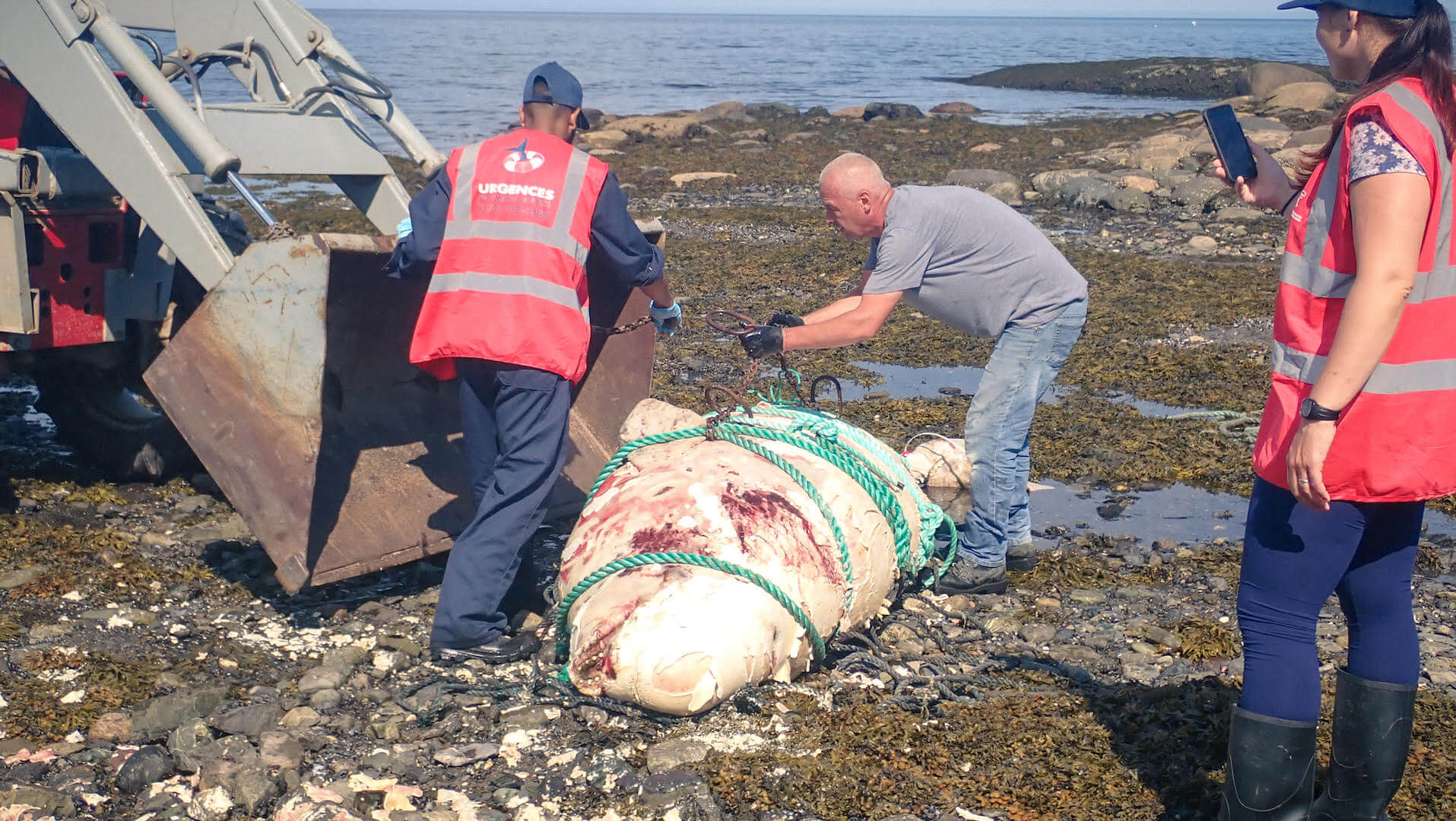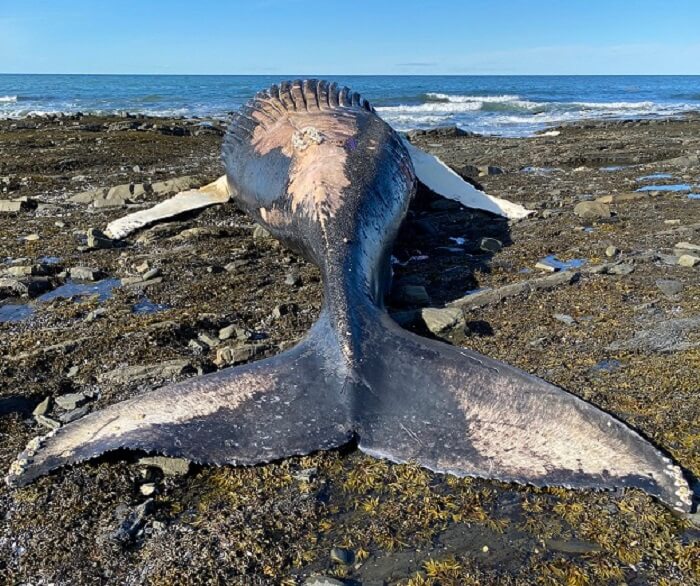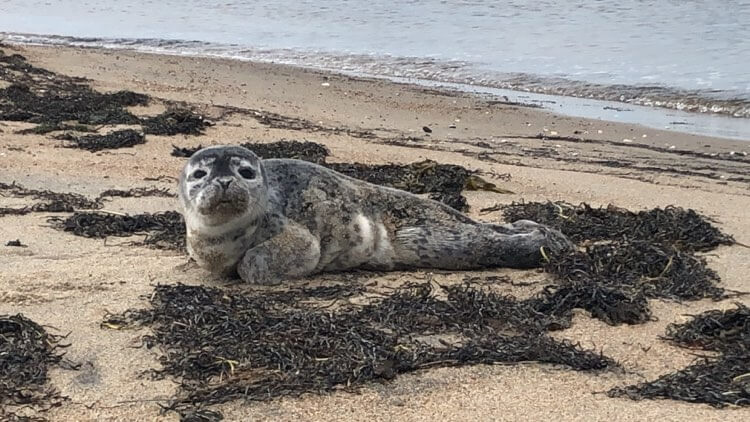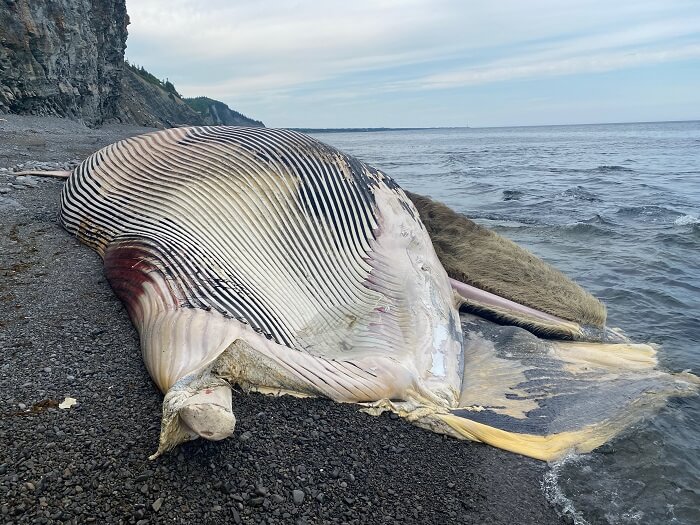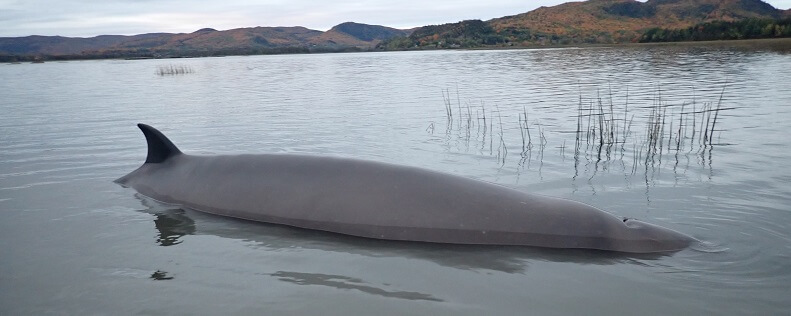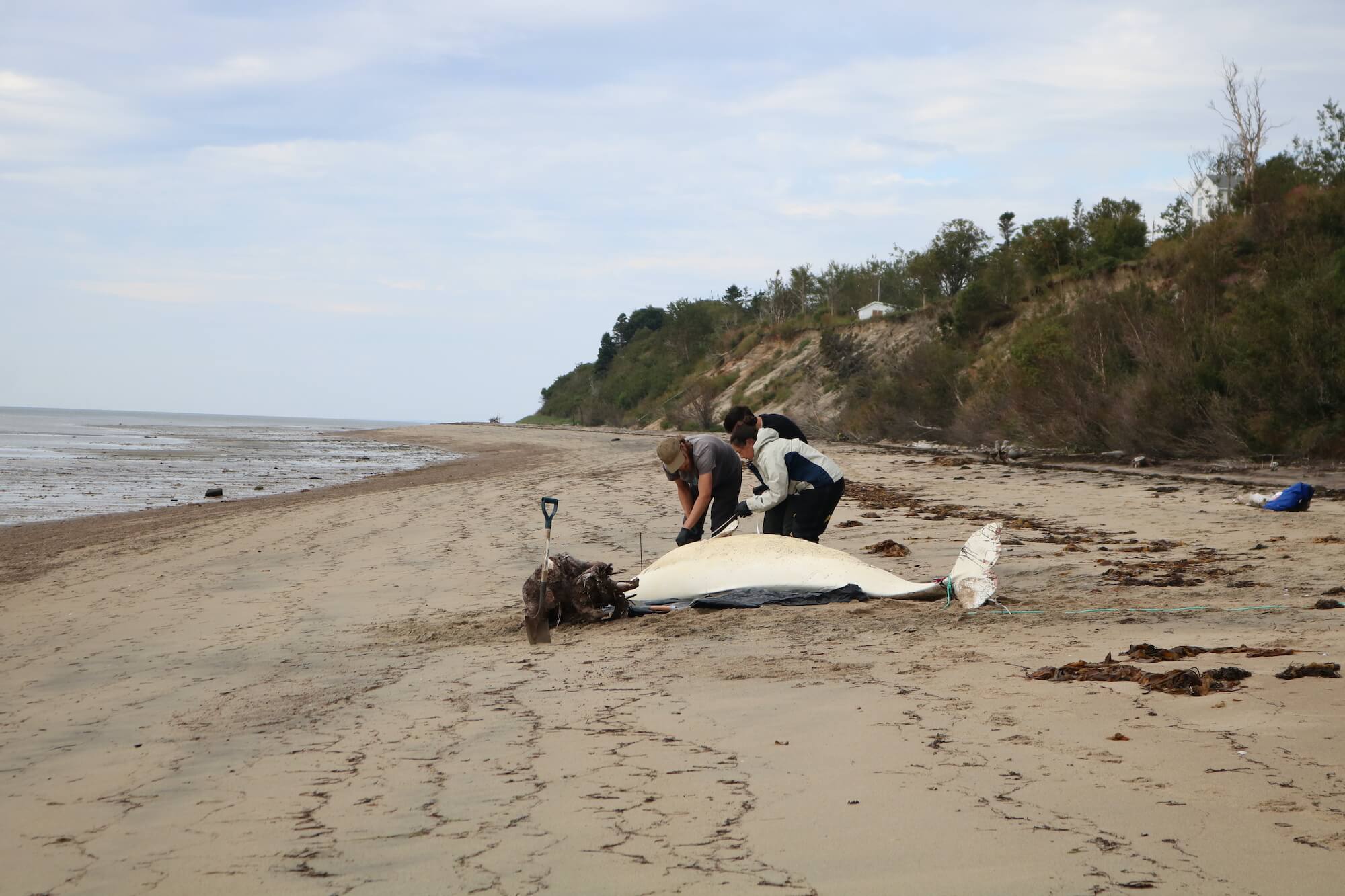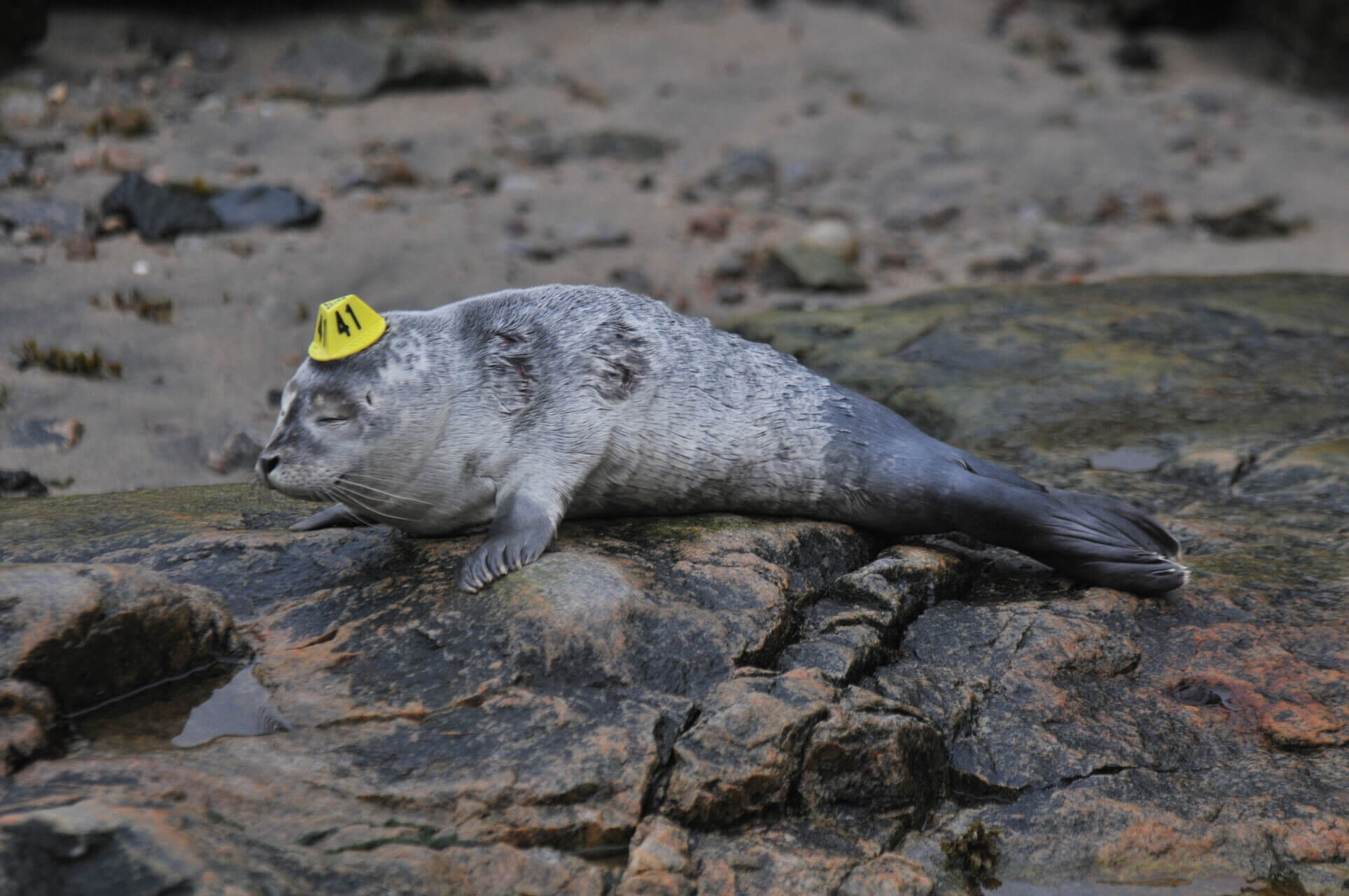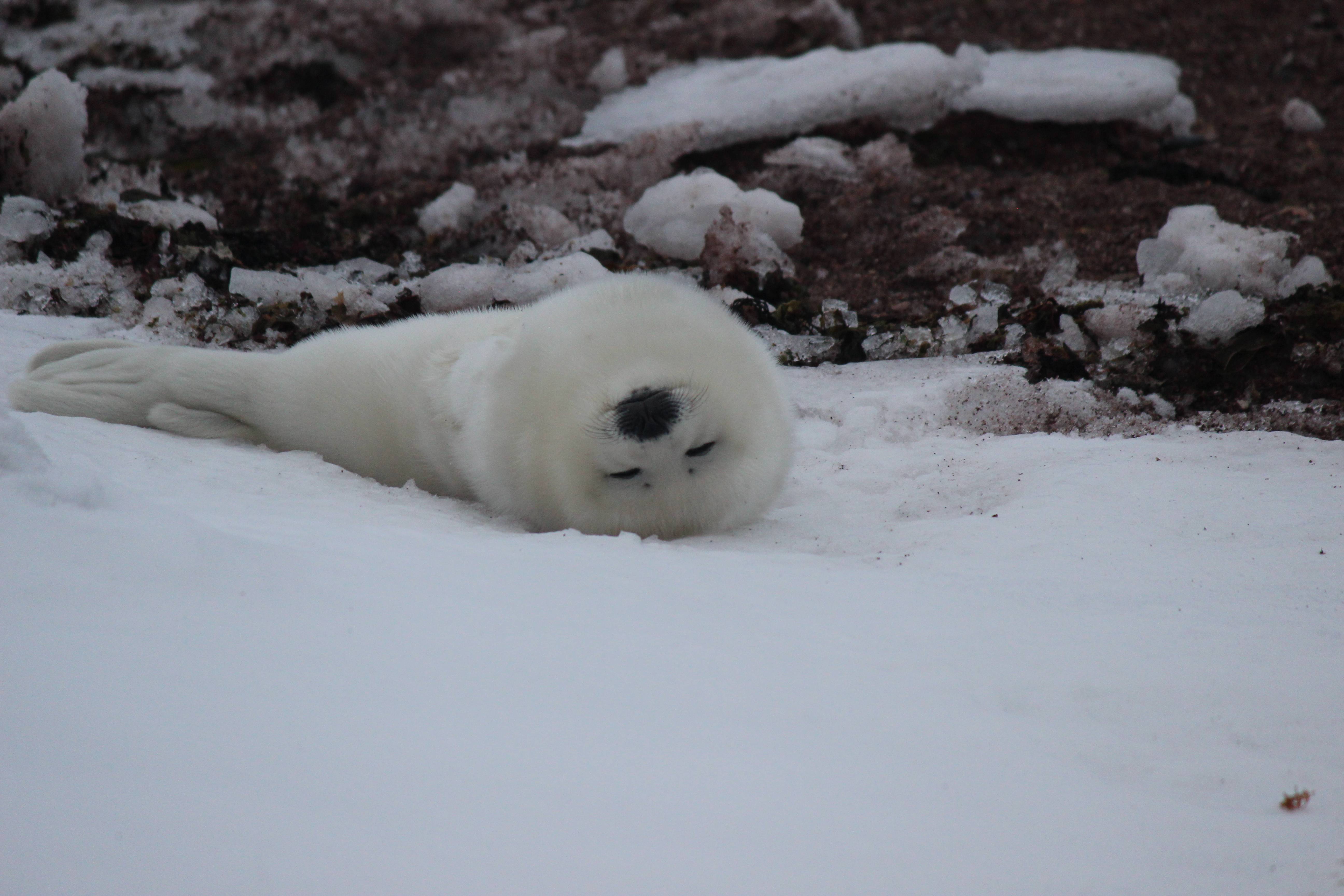By Mélissa Tremblay, Head of the Marine Mammal Emergencies call centre
Beginning in November, Marine Mammal Emergencies (UMM) generally receives fewer and fewer calls. Good for the whales… and for the team! This lull in in-coming calls allows everyone to catch their breath after another very eventful year. Now is a good time to take stock of the past year and begin planning for next season.
703 calls for 258 cases
This year, like every year, UMM handled a large number of calls: 703 to be exact, the majority of which were received during the summer. Fortunately, the number of calls does not correspond to the number of dead or vulnerable animals observed. The team actually handled 258 cases, 79% of which involved carcasses and just 21%, live animals. Every case is unique and dear to our hearts, but a few of this year’s more noteworthy cases are described below.
This year, like every year, UMM handled a large number of calls: 703 to be exact, the majority of which were received during the summer. Fortunately, the number of calls does not correspond to the number of dead or vulnerable animals observed. The team actually handled 258 cases, 79% of which involved carcasses and just 21%, live animals. Every case is unique and dear to our hearts, but a few of this year’s more noteworthy cases are described below.
Harbour seals on shore
The harbour seal pupping season, which takes place in May and June, is always a very busy time for UMM. During this period, we receive numerous reports from residents concerned that a pup is left alone on shore. However, this is a normal situation. Indeed, in order to feed, a mother seal may leave her young for several hours at a time.
In 2021, our volunteers and mobile teams had to intervene in over 20 cases involving harbour seals. Their mission was to reassure and educate the public about the presence of seals, ensure the seals are not harassed and put up informative posters. For example, these signs emphasize the importance of maintaining a distance of at least 50 metres when observing a seal.
Learn more: Protecting Young Harbour Seals on the Beaches
Extra effort for beluga carcasses
Since the start of 2021, 18 beluga carcasses have been found, including one outside the species’ usual range in Prince Edward Island.
Given the precarious status of this population, QMMERN is particularly keen on mobilizing its resources for these carcasses. Our role is to secure the carcass as quickly as possible so that it can be recovered for necropsy or at least sampled on-site and thus contribute to the St. Lawrence beluga pathology program. First implemented 30 years ago, this program aims to better understand the causes of beluga mortality.
This year, in the majority of cases we relied on volunteers to document the incident, take photos, and secure the carcass, giving our teams more time to develop a response plan. Carried out by our volunteers in collaboration with our teams and those of our partners, these interventions enabled us to send 6 beluga carcasses to the Université de Montréal’s Faculty of Veterinary Medicine to undergo a comprehensive necropsy. Eleven other carcasses had to be sampled on-site due to their advanced state of decomposition.
Analyses are ongoing and the results will be available next spring.
Rambling belugas
Stray belugas also kept us on our toes this summer… They were everywhere! During the spring of 2021, nearly a dozen belugas were reported outside their usual summer habitat. The Marine Animal Response Society (MARS), QMMERN’s counterpart in the Maritimes, also received several calls for vagrant belugas in Prince Edward Island, Nova Scotia and New Brunswick.
Back in Quebec, our volunteers, teams and partners spent time raising awareness for two belugas roaming the waters near Matane and Bonaventure. In these types of cases, we place great emphasis on awareness, informing the local population of the animals’ presence and the importance of maintaining a safe distance. These solitary belugas sometimes come in search of interaction and it is not always easy for boaters to keep their distance. That said, it is important to resist the temptation and avoid approaching or interacting with them as much as possible.
Difficult-to-access fin whale carcass
The QMMERN team responded to several reports of cetacean carcasses this summer. Some of them posed their fair share of challenges and required close collaboration between our teams and our partners. Such was the case with this fin whale carcass discovered early in the season (June 19) by an employee of Forillon National Park in the Gaspé Peninsula. The gigantic carcass washed up at the foot of a cliff, in a particularly difficult place to access. Following discussion with the park manager and despite the technical complexity of the operation, our mobile team managed to reach the site and sample the carcass. The efforts deployed are proportional to the stakes: the fin whale is a species of special concern, so it is of particular interest for documentation and sampling.
Two stranded beaked whales
On September 30, UMM received an unusual call: a report of two live northern bottlenose whales beached in Listuguj in the Gaspé Peninsula. This is an endangered species, so it was decided to dispatch one of the mobile teams to the site. Unfortunately, the situation changed with the tide: one of the whales disappeared, while the other one did not survive.
A complete necropsy is performed on the latter’s carcass in collaboration with MARS, the Canadian Wildlife Health Cooperative , and Fisheries and Oceans Canada. The necropsy did not reveal any information about the animal’s health; we will therefore have to wait for the results of more detailed analyses of the samples to find out more. Following the necropsy, the beaked whale’s skeleton was recovered by GREMM with the aim of displaying it at the Marine Mammal Interpretation Centre for educational and awareness purposes.
What ever happened to the other stranded beaked whale? A beaked whale carcass was found almost two months later on the shores of New Brunswick, not far from the first stranding site. Our colleagues at MARS who responded to this report suggest that this was the same individual involved in the September 30 stranding.
Keep an eye out, even in winter!
Despite the fact that winter is right around the corner, it is still possible to happen upon seal or cetacean carcasses when walking near the river. Winter is also the time when seals frequent the mainland or pack ice to rest, reproduce and, ultimately, give birth. If you see a seal out of the water, watch it from a distance and do not worry, as this is a completely normal and natural phenomenon! The animal splits its life between land and sea; it will therefore return to the water when the time is right. However, an intervention may be necessary if the seal is injured, ill, or victim of harassment from sometimes well-intentioned strollers.
In any case, 1-877-722-5346 is the number to dial at all times should you encounter a dead or vulnerable marine mammal (seal or whale).


